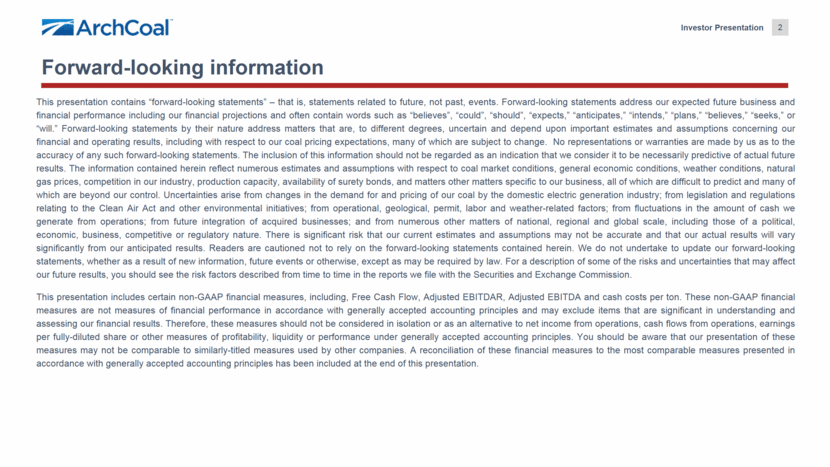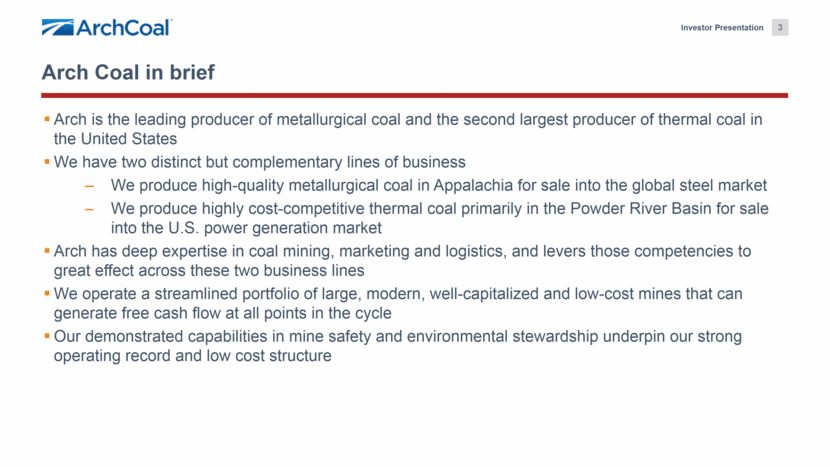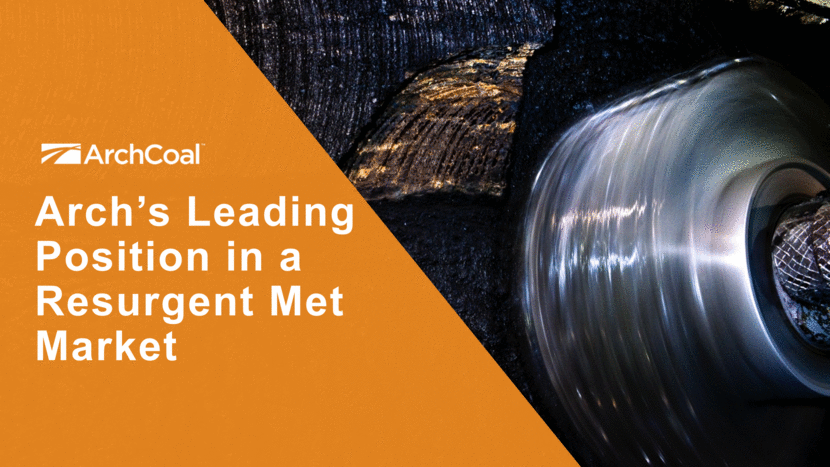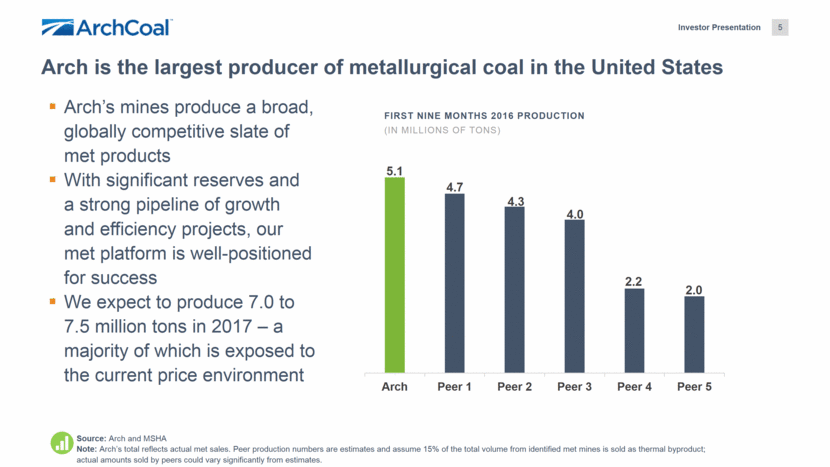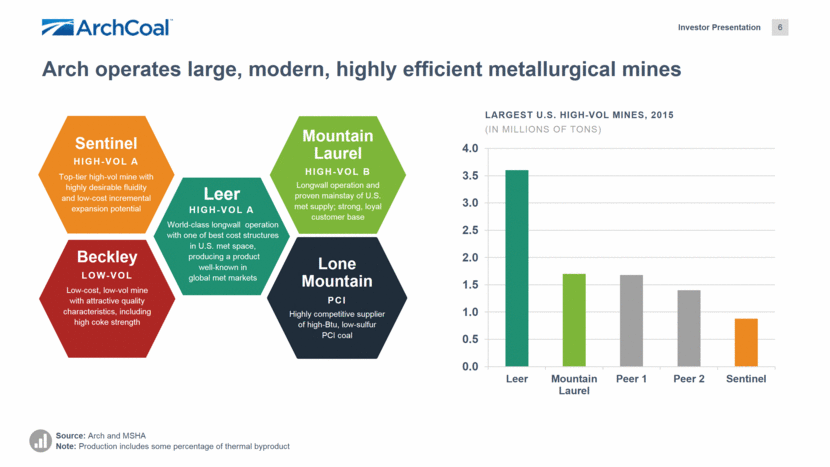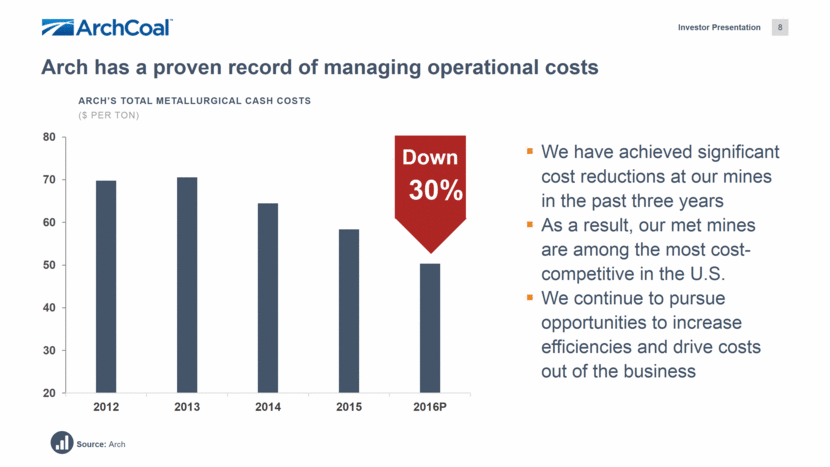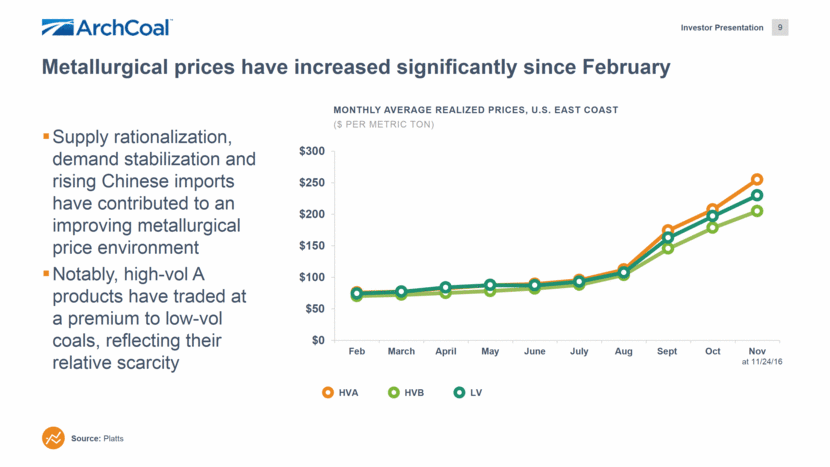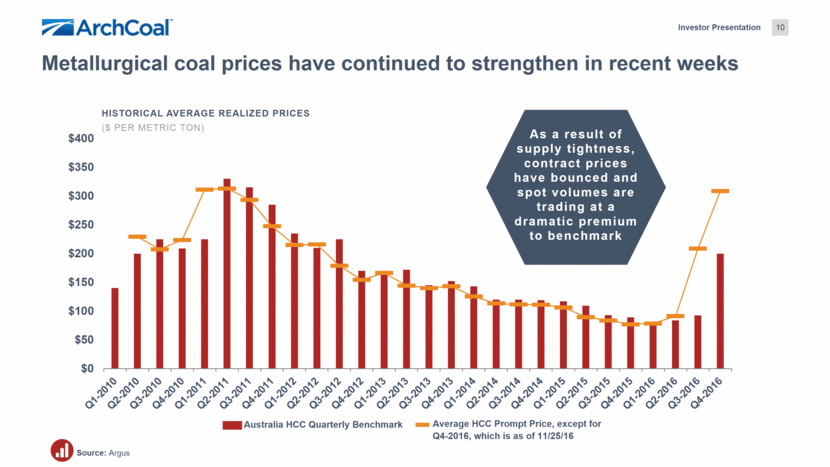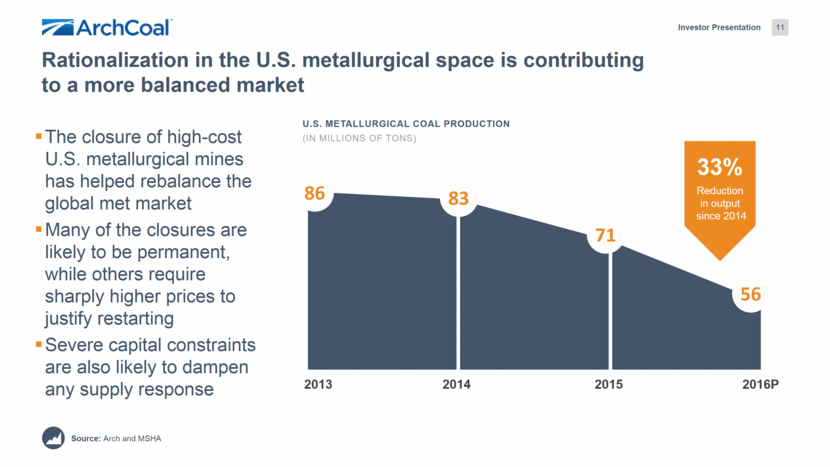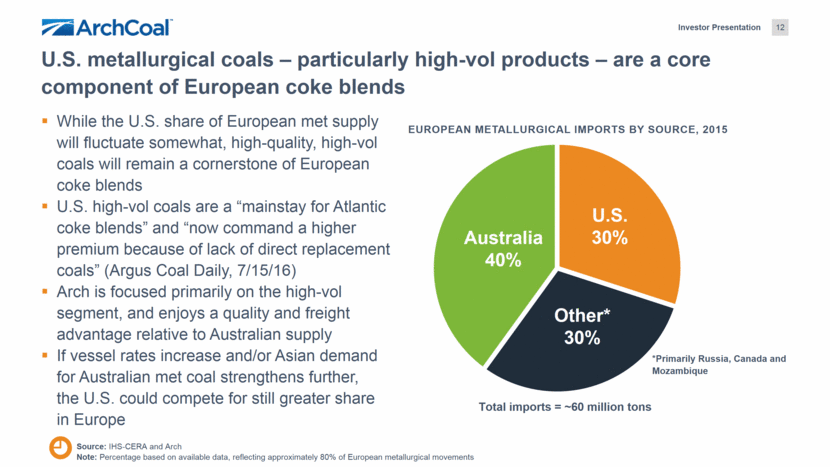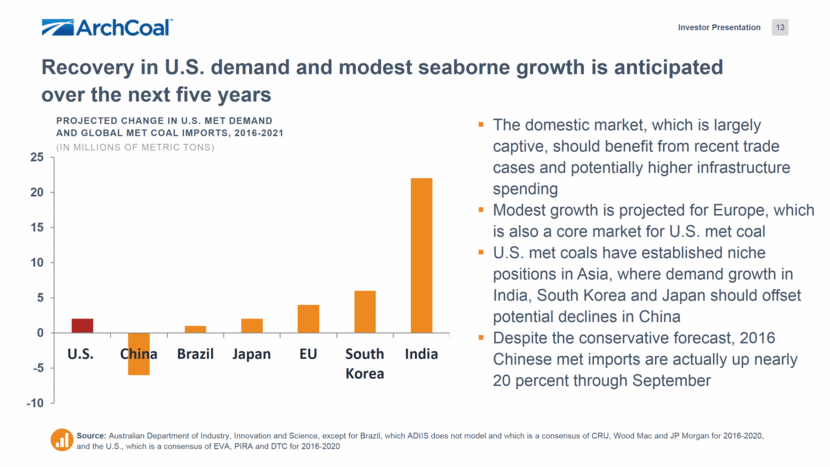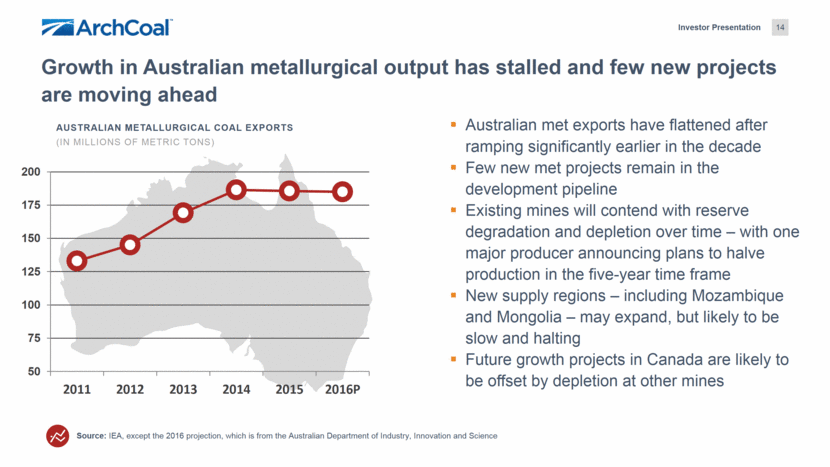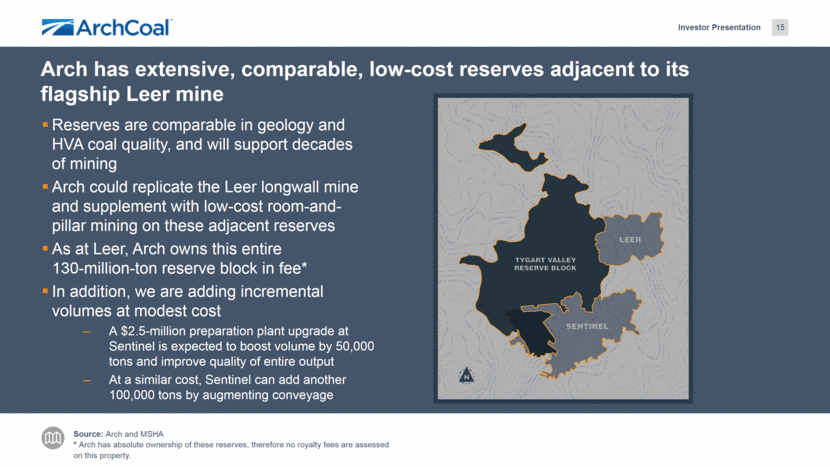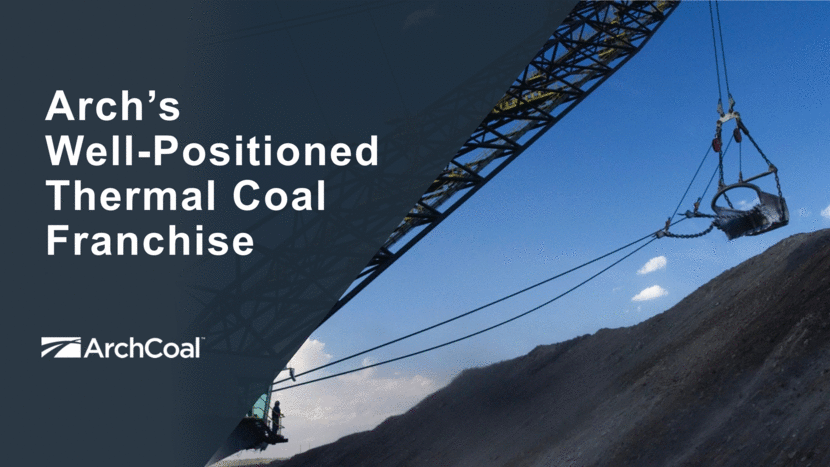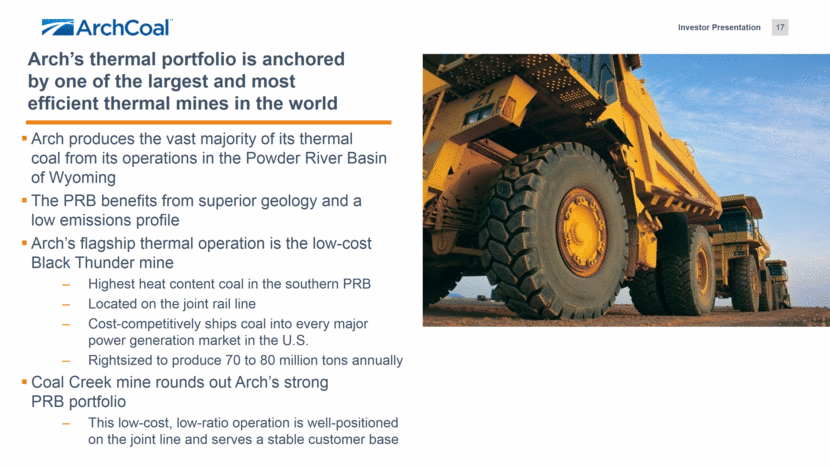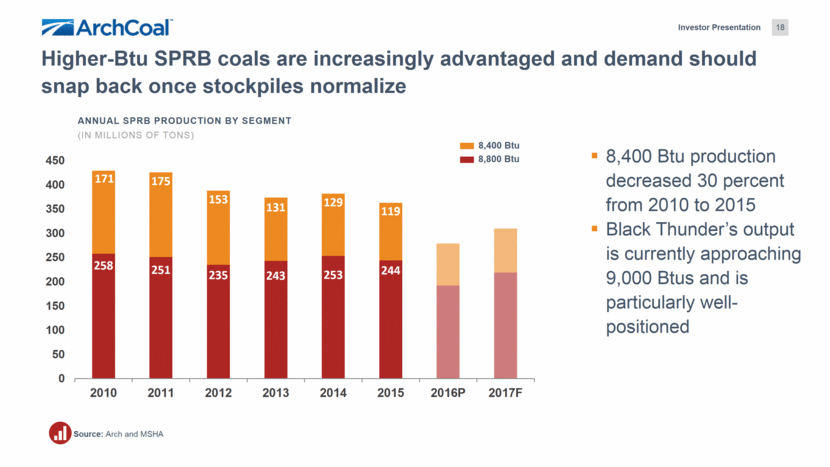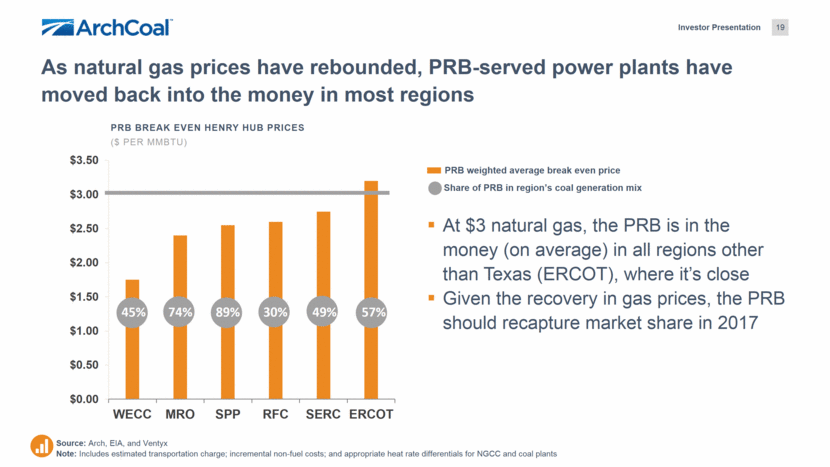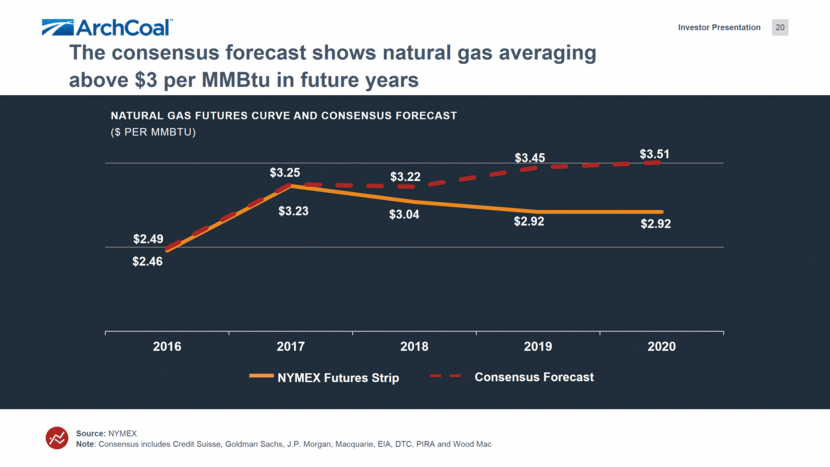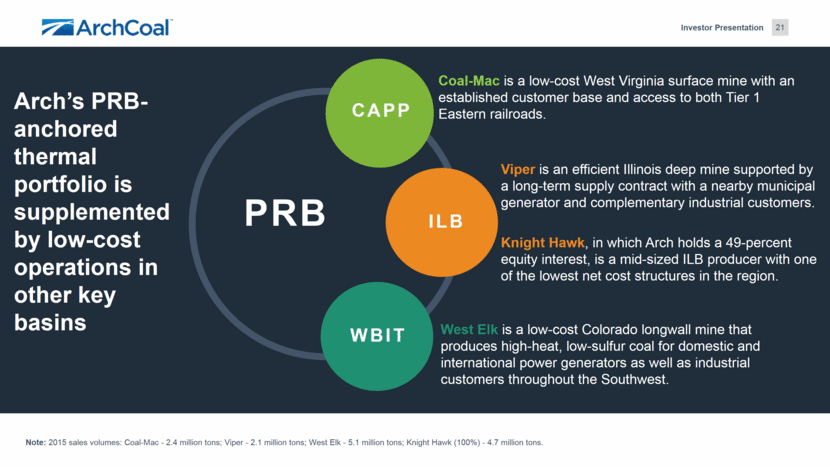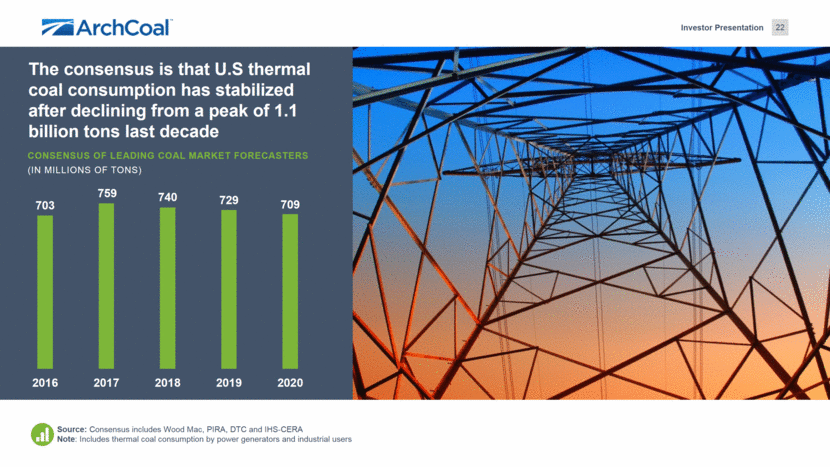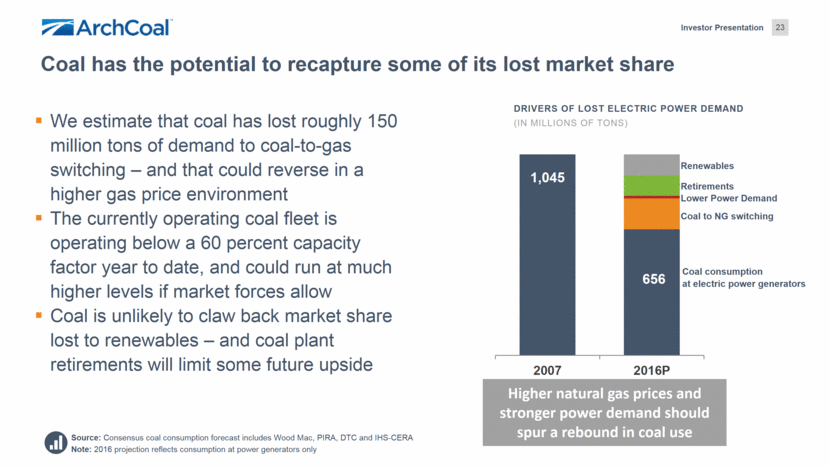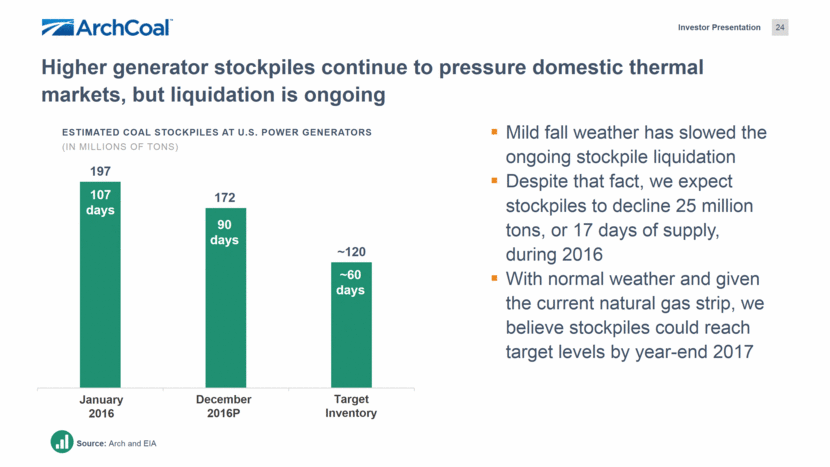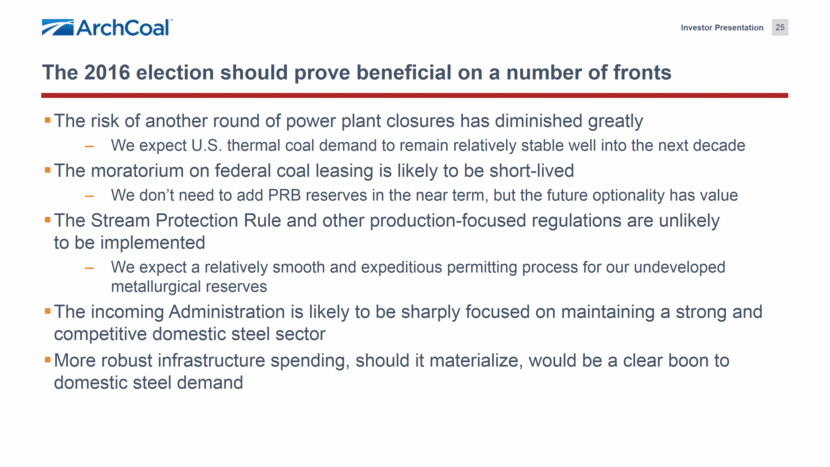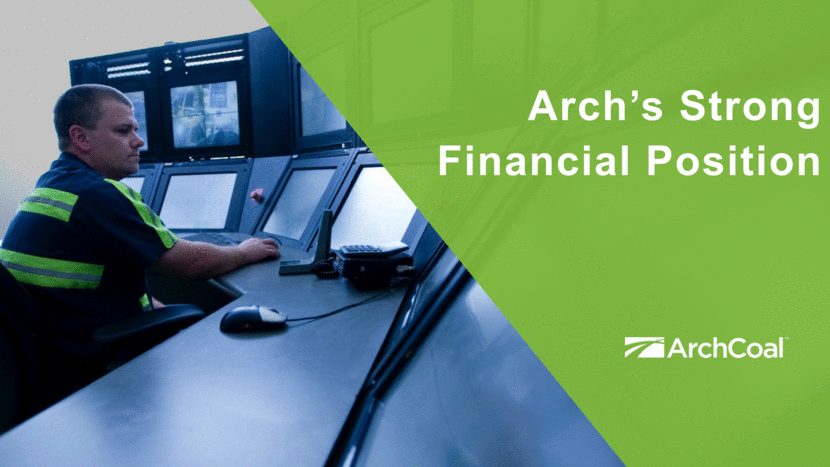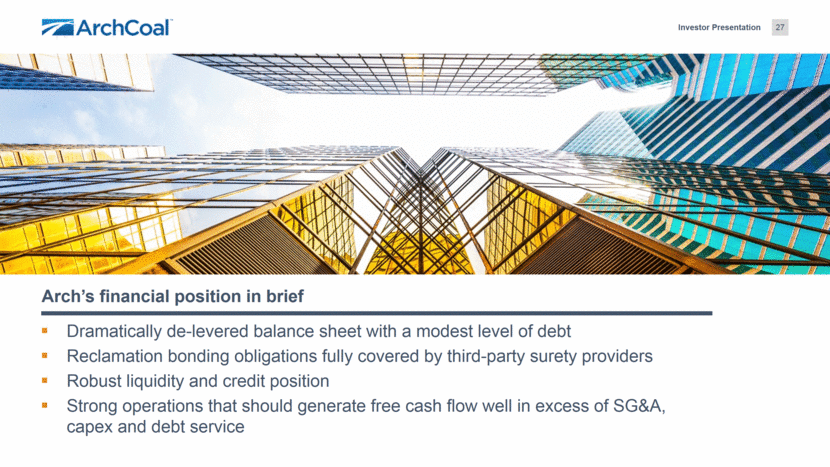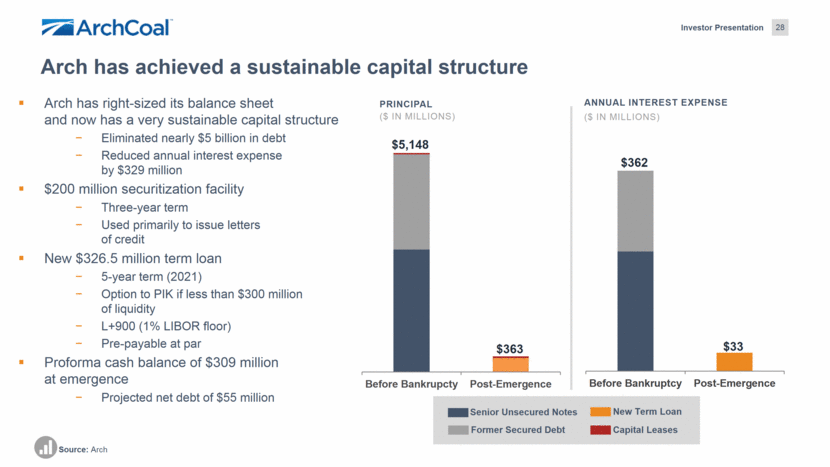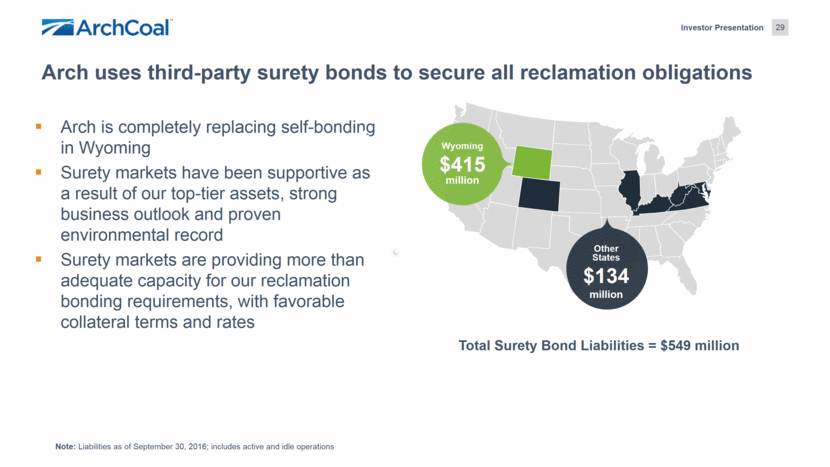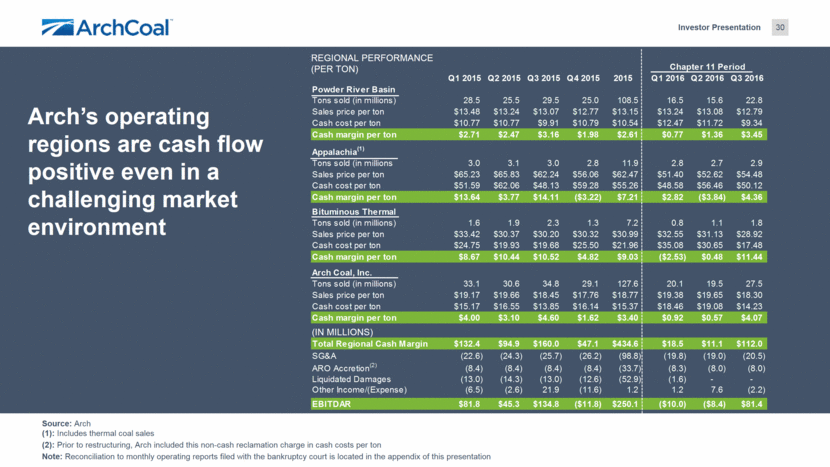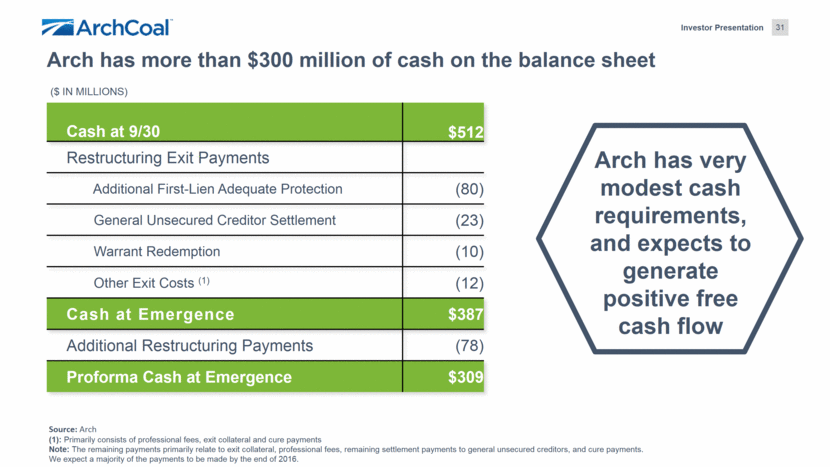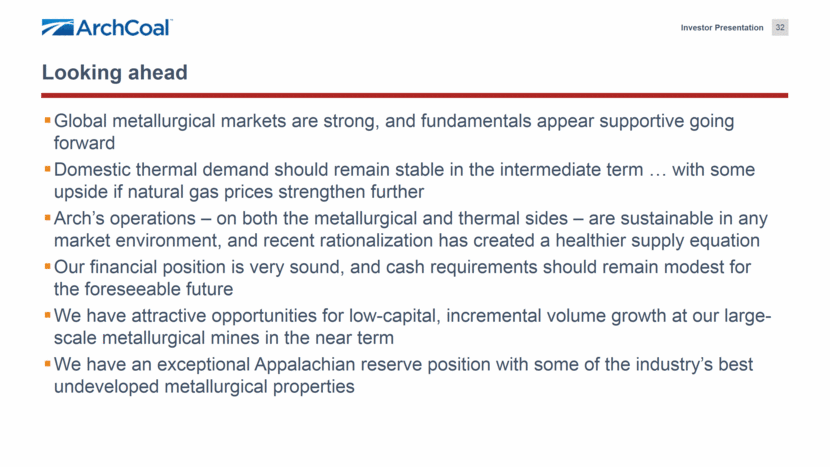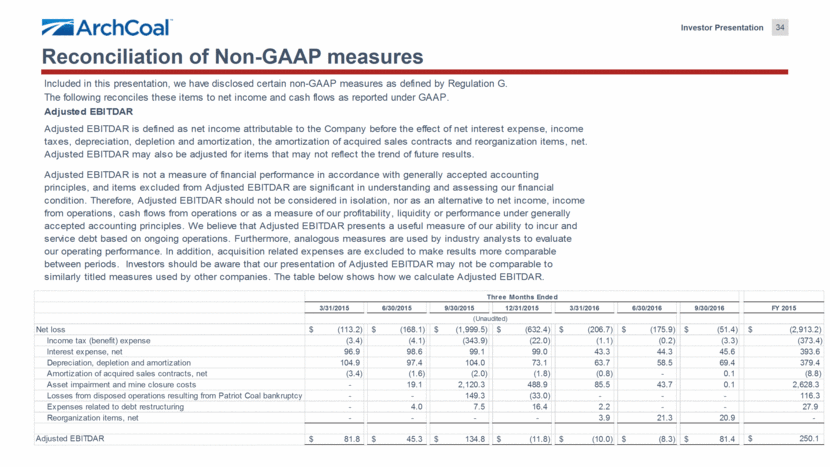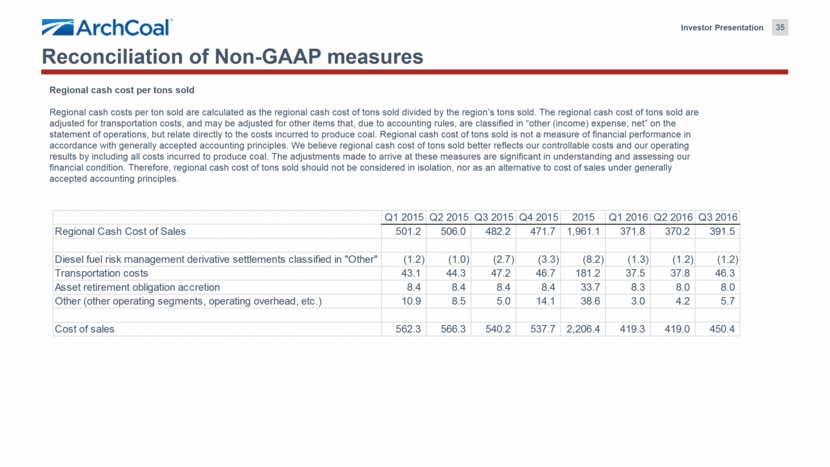2 Forward-looking information Investor Presentation This presentation contains “forward-looking statements” – that is, statements related to future, not past, events. Forward-looking statements address our expected future business and financial performance including our financial projections and often contain words such as “believes”, “could”, “should”, “expects,” “anticipates,” “intends,” “plans,” “believes,” “seeks,” or “will.” Forward-looking statements by their nature address matters that are, to different degrees, uncertain and depend upon important estimates and assumptions concerning our financial and operating results, including with respect to our coal pricing expectations, many of which are subject to change. No representations or warranties are made by us as to the accuracy of any such forward-looking statements. The inclusion of this information should not be regarded as an indication that we consider it to be necessarily predictive of actual future results. The information contained herein reflect numerous estimates and assumptions with respect to coal market conditions, general economic conditions, weather conditions, natural gas prices, competition in our industry, production capacity, availability of surety bonds, and matters other matters specific to our business, all of which are difficult to predict and many of which are beyond our control. Uncertainties arise from changes in the demand for and pricing of our coal by the domestic electric generation industry; from legislation and regulations relating to the Clean Air Act and other environmental initiatives; from operational, geological, permit, labor and weather-related factors; from fluctuations in the amount of cash we generate from operations; from future integration of acquired businesses; and from numerous other matters of national, regional and global scale, including those of a political, economic, business, competitive or regulatory nature. There is significant risk that our current estimates and assumptions may not be accurate and that our actual results will vary significantly from our anticipated results. Readers are cautioned not to rely on the forward-looking statements contained herein. We do not undertake to update our forward-looking statements, whether as a result of new information, future events or otherwise, except as may be required by law. For a description of some of the risks and uncertainties that may affect our future results, you should see the risk factors described from time to time in the reports we file with the Securities and Exchange Commission. This presentation includes certain non-GAAP financial measures, including, Free Cash Flow, Adjusted EBITDAR, Adjusted EBITDA and cash costs per ton. These non-GAAP financial measures are not measures of financial performance in accordance with generally accepted accounting principles and may exclude items that are significant in understanding and assessing our financial results. Therefore, these measures should not be considered in isolation or as an alternative to net income from operations, cash flows from operations, earnings per fully-diluted share or other measures of profitability, liquidity or performance under generally accepted accounting principles. You should be aware that our presentation of these measures may not be comparable to similarly-titled measures used by other companies. A reconciliation of these financial measures to the most comparable measures presented in accordance with generally accepted accounting principles has been included at the end of this presentation.
